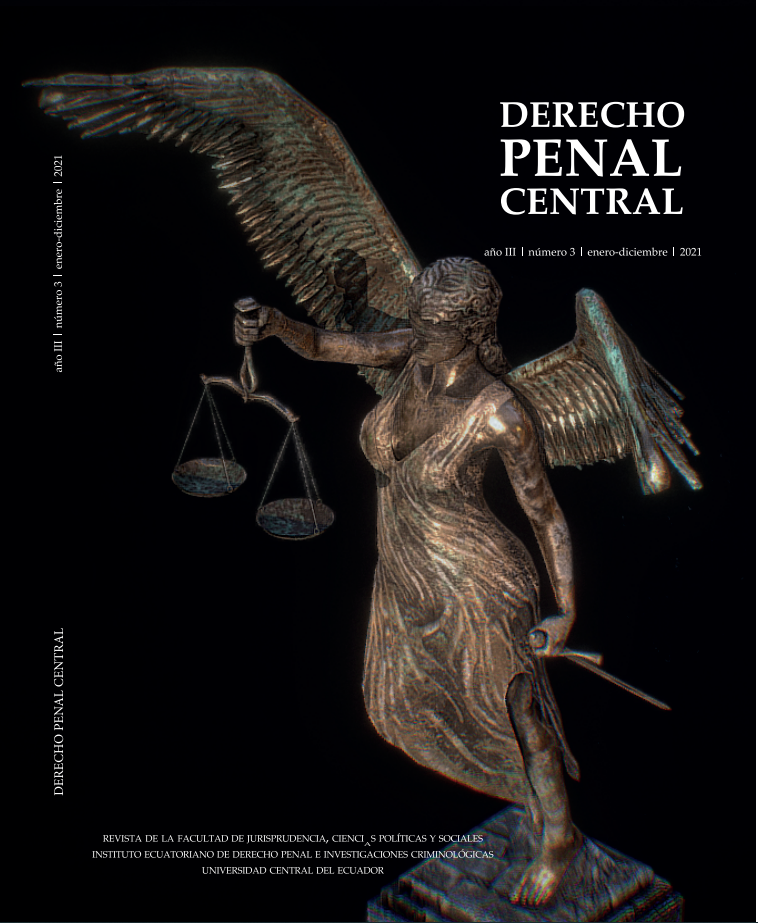Fe de erratas
Resumen
En el artículo «El fenómeno de la corrupción y su repercusión en el Estado moderno», de la autora Dra. Lady Diana Salazar Méndez, publicado en la Revista Derecho Penal Central, año III, número 3, enero-diciembre 2021, página 157,
Donde dice:
ABSTRACT
In this article, the author reflects on the possible contributions of the most recent neuroscientific studies, in relation to the study and analysis of the theory of crime, especially the analytical category of criminal culpability. To this end, among other things, the jurist analyses the main conceptions sustained in the field of neurosciences, the most outstanding methodological problems that arise from uncritically transferring neuroscientific contributions to the subject area of criminal law and the fallibility of experiments based on current «neurotechnologies». To conclude, Arocena proposes a provisional and brief conclusion, although no less disturbing.
KEY WORDS: neurolaw; neuroscience; criminal culpability; free will; neurotechnologies.
Debe decir:
ABSTRACT
Over the past two decades the will to fight corruption has increased in society at large. Although their discussion some years ago was an inconvenience to public debate, today it is almost impossible to argue convincingly in favor of corruption. The specter of corruption
haunts modern politics and economics, threatening the legitimacy of states and markets, while encouraging repetitive and incomplete attempts to cleanse and legitimize the political-economic order. Thus, the fight against corruption is one of the fundamental pillars
on which almost all modern governments, from the most authoritarian to the most democratic, base their claims of legitimacy. For this reason, there remains the need to redouble efforts to strengthen States through actions aimed at protecting human rights, achieving
political and social stabilization, ensuring an effective and uniform distribution of national wealth, and ensuring democracy and sustainable development in the countries.
KEY WORDS: corruption, anti-corruption policies, criminal law, transparency, State.
El equipo editorial de la Revista Derecho Penal Central pide disculpas por este error técnico y procede mediante esta fe de errata a corregirlo, dejando constancia que el texto original enviado por la autora es el que aquí se presenta, y puede ser encontrado en los archivos del comité editorial. Pedimos sinceras excusas a la autora y nuestros lectores por las molestias causadas.
Descargas
Publicado
Cómo citar
Número
Sección
Licencia

Esta obra está bajo una licencia internacional Creative Commons Atribución-NoComercial-SinDerivadas 4.0.





